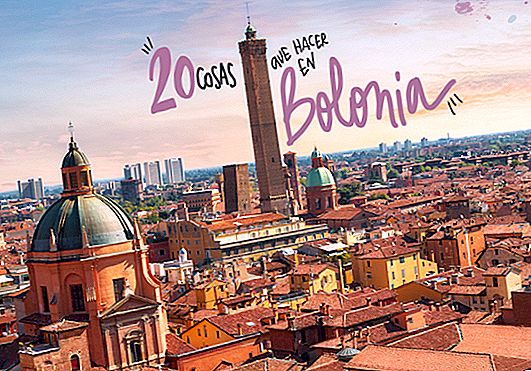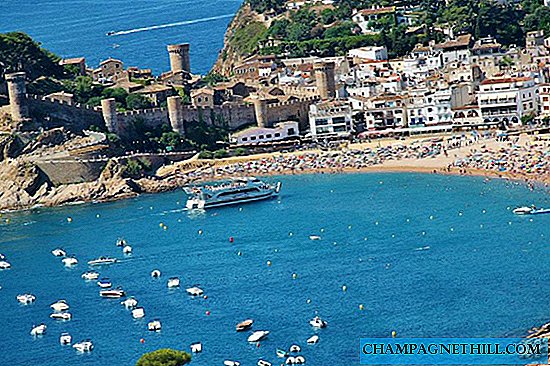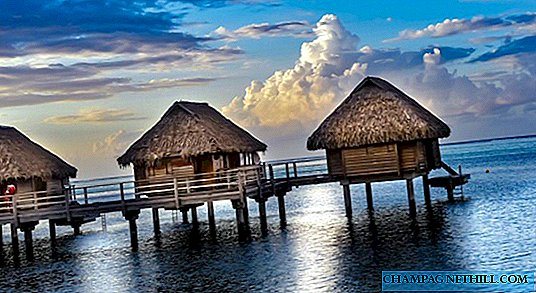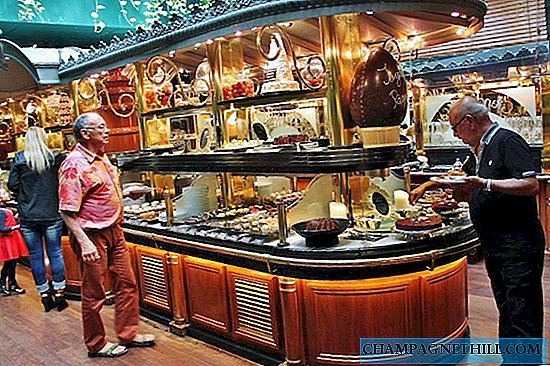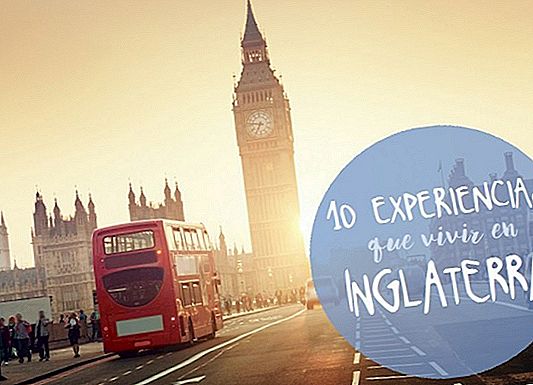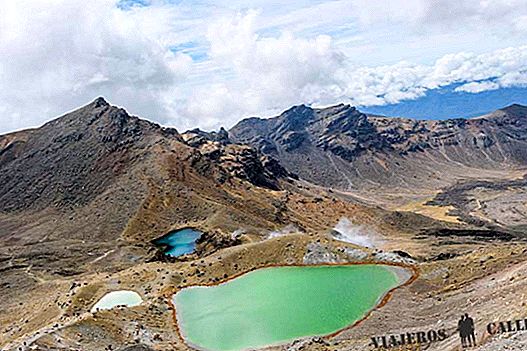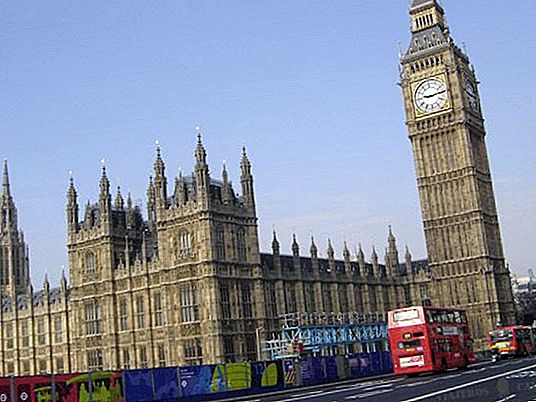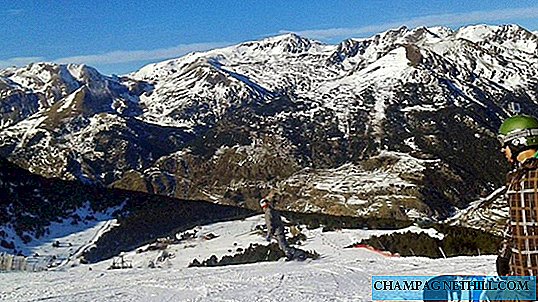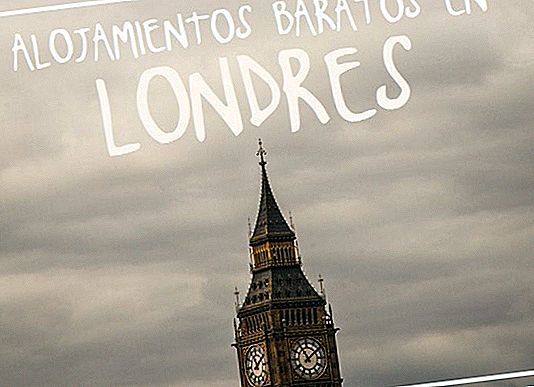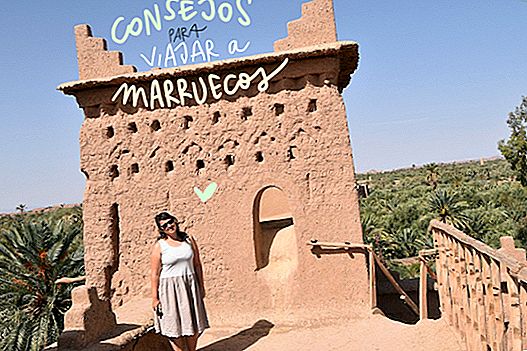
Are you looking for recommendations and advice for travel to Morocco? You already have your flight but you don't know where to start organizing the trip? Do I need a visa? What will be the necessary budget? Are they going to kidnap you to ask your parents for a rescue of 50 camels? We will try to answer the most frequent questions that arise before this trip and give you a few tips for traveling to Morocco (and not screw it up):
Do you need a visa to travel to Morocco?
If, like us, you are a European citizen You will NOT need a visa to travel to Morocco. All you have to do is fill in an entry form with your data. Tip: take a pen with you 😉 When leaving the country you also have to fill out another form, it is the only bureaucracy that you have to do. The maximum stay you can stay will be 90 days, oh and the permit is free!
Update: we have been advised that, apparently, we no longer have to fill out the form thanks to a new regulation. Better not? 😉
For other nationalities, such as Argentina, Brazil, Peru, Chile or Mexico, they will also be the same conditions. However, citizens of other Latin American countries such as Colombia, Ecuador, Bolivia ... will need to process a visa before arriving in Morocco, which will have to be done at the embassy or consulate of Morocco and has an approximate price of $ 20.
How to get to Morocco?
To get to Morocco you have two options: by air or by sea.
- Flight to Morocco: in recent years the routes between different cities in Morocco and Europe have multiplied. And the best part is that many of these flights are with low cost companies like Ryanair, Easyjet or Transavia, so flights are usually very cheap and the best option to get to Morocco. We always use the Skyscanner website to compare prices and alternatives.
- Boat to Morocco: you will have to go to the Andalusian coast (Almeria, Motril, Malaga, Algeciras or Rate) and from there take the jump to some city in northern Morocco (Swimmer, Alhucemas or Tanger), where to start your adventure. The best thing about this option is that you can board your own car or motorcycle (duly documented to drive in Morocco), otherwise we prefer to take a flight. To check the different shipping companies and prices, we always look at the DirectFerries website.
Do you need travel insurance?
The Moroccan authorities do not require you to have contracted health insurance to visit the country, but our advice is not to travel to Morocco (or anywhere) without being insured. If you still don't have one, we tell you everything you have to consider to choose the best travel insurance. We have been traveling with Iati for years and whenever we have used it they have been great. You already know that you have a 5% discount if you hire from this link.
In case of urgency, the big cities usually have good hospitals and private clinics, with trained professionals many of them in Spain or France. In rural areas, you can imagine that things change.
What is the currency and how to manage money?
The official currency in Morocco is the dirham (MAD), with a fairly simple change: € 1 equals 10 dirhams. Travelers will have it very easy to quickly "decipher" how much things cost. However, on many occasions merchants, restaurants, hotels will accept payments with €. But do not play it and better get dirhams.
The important question now ishow to get dirhams? To get foreign currency there are several ways, more less convenient, that we will explain:
- Book dirhmas at your bank. It is usually the worst option
- Change € upon arrival. It's a quick way to get dirhams, but you usually lose some pasta. If it is your chosen option, you should know that in the airports the exchange rate is usually much worse than in the exchange houses / banks of the cities. Even so, check and compare.
- Get money at the cashier. It is the option we recommend, provided you have a card with advantages for travelers.
We have chosen to use the Bnext card as the first option in our trips and we had no problems when it came to getting money at the ATMs. In addition we also carry the N26 card in case the flies. Both are free cards With good conditions to save us a little money in commissions, but with certain limitations, so they complement each other perfectly. In addition, in Bnext there is a € 5 welcome promo!
In case you do not have one of these cards, find out well in your bank, because the commissions will be quite large. The maximum amount that can be withdrawn at a cashier in Morocco is 2,000MAD (about € 200).
How much does it cost to travel to Morocco?
The obvious answer is: it depends. It is one of those destinations where you can influence the budget directly: either travel for a few euros, or spend a month's salary! So it depends only on you and the travel style you choose.
We have followed an average budget, with these reference prices:
- Accommodation: we stay almost always in riads (€ 30-50 / night)
- Food: We went to tourist restaurants, but with affordable menus and good recommendations. The main courses used to be on 5-8€ and drinks approx 1-2 €. The famous tea is for € 1 the teapot, with quantity for 2 or 3 glasses (in other places we saw it for double). But we also pull local sites, with sandwiches (for € 1), bakeries with super cheap delicious breads, or restaurants with elaborate but more humble dishes, with cheaper menus. Water bottles are priced at 6 dirhams.
- Transportation: we rented a car to move that went well in price. Calculate some € 15-20 per day, plus gasoline (€ 1 / l) and one way rate of about € 75. Compare rental car prices here.
- Other expenses: account must be taken of tickets to tourist attractions (whose prices have multiplied absurdly in recent years) and excursions essential, like the desert (desert of Er Chebbi, and desert of Erg Chigaga).
We tell you in more detail a travel budget to Morocco of 2 weeks.
Refering to tipWe did not have the feeling that it was a widespread custom, but we used to leave something in the restaurants (5-10%) as long as it was good service and good food. When we didn't leave we didn't feel bad either. It is a somewhat complex issue, which depends more on the culture of the traveler, not the country where you travel. The Americans do not contemplate leaving a restaurant without leaving a sweet tip, and the Spaniards, Italians, etc ... we leave the coins left over. And nothing happens.
Something important if you want to get good prices in the souks is the bargaining. This is almost mandatory! Get your most hidden gifts of racanillo and get to negotiate the price of what you really want to buy. If you are not sure, do not get dizzy and waste your time. And another thing, do not go crazy for 1 dirham up or down.
Buy a SIM upon arrival
It is one of the expenses that we see necessary in all trips. Buy a local SIM (or carry a special SIM with data from Spain) to have internet at all times. Not so much for using social networks or chafartear Marca ... but for having the possibility to consult any information at any time (if reviews of a restaurant, if you load a map, if you use it as GPS in your car route ...).
We wait to buy it there. In the Marrakech airport We found Orange and Inwi stalls selling SIM cards. We caught an Orange with 5Gb for 1 month for € 10. It worked quite well throughout the trip, but if you want to try another one, the main one is Maroc Telecom. If you can't buy it at the airport, there are shops and tobacconists in the big cities where you can do it. Remember to bring your passport to register the number, it is a quick and easy procedure.
If you prefer to buy a special card for have internet in Morocco Already from Spain, you can take a look at Holafly (you have a 5% discount from this link). The price will be more expensive but you save the process of looking for it in Morocco.
Do I need to speak Arabic to travel to Morocco?
Strongly NO. Moroccans are cracks of languages and many speak Spanish (or they clatter it). You already know that Morocco was a French protectorate and since then French is still the official language, so if you feel more comfortable using a “bonjour” or a “merci”, it is also worth it mar The Moroccan is a super hospitable town and, even if mixing languages, using sign language or making faces, you will end up communicating.
Is it safe to travel to Morocco?
In general it is, although as always you have to have common sense and, for example, avoid walking alone late at night through the city medinas, attract attention or be disrespectful in sacred places.
- How about a woman alone for Morocco? I traveled with Rober, so I can't comment firsthand, but I think that the advice I can give you (from previous trips) is worth it here too: dress in a way that matches the country, be kind but firm and if you notice that something is wrong , follow your instinct. It is not a bad idea to wear a ring and to the question "are you married?" Say yes, even if it's a lie.
- Is traveling by bus or train safe? We rented a car and did not take any means of transportation, but we agreed with other travelers who were touring the country by bus and had no problem. It is also a fairly common way of moving and, although traffic in Morocco is often said to be crazy, we do not notice it especially dangerous. The only inconvenience may be the departure time (there are frequent delays and, sometimes, buses leave only when they are full). The train follows preset schedules and, although it is more expensive, it may be a better option. If you want to travel by train in Morocco, check out the official website of the country's trains.
- Is driving in Morocco safe? Yes, the roads in general were not in very bad conditions (there were some sections under construction and if it was a bit tedious) and the traffic, except in the big cities, was not a problem at all.
What is the best time to travel to Morocco?
By having such a wide variety of climates and geographical areas (remember that there are coast, mountains and desert), you will find different conditions in the same season of the year. But usually we would say that spring Y autumn They are the best times to travel to Morocco, mostly because in summer, especially the southern area, it is extremely hot and doing the desert excursion will be an odyssey. In winter, moving around the Atlas can be complicated due to rain and snow.
But if you want to travel to the big cities (Marrakech, Fez, Tanger or Casablanca ...) we believe that you will not have problems (maybe we would avoid July and August because of the heat).
What is the best itinerary for a first trip to Morocco?
We do not know if it is the best, but personally we found the most complete considering the days of travel, so it is the one we follow. This was our 18-day Morocco travel itinerary:
- Arrival in Marrakech (3 days)
- Roadtrip through the interior of the country (10 days)
- Departure from Fez (3 days)
Here is a 2-week travel guide to Morocco by car, from Marrakech to Fes, with itinerary and map, and lots of useful info.
We were left out of the inkwell visits from essential sites such as Essaouira, Agadir, Chefchaouen, Tanger and Tetouan, but we have to return!
Travel to Morocco in Ramadan
During this month, the Arabs fast from when the sun rises until it sets. As a tourist, there is NO obligation to fast, but you will not find open restaurants or many facilities to find food ... You should buy the night before (or in supermarkets) and eat at the hotel (do not go on the streets with a sandwich ... is a slap for those who do fasting!).
If you have no choice but to travel during this time, you just have to adjust your habits a bit. But if you have a choice, you better choose another month to travel to Morocco.
More tips for traveling to Morocco:
Here are other important tips for a perfect trip to Morocco:
- Sign up for free tour, where there are. Being able to know the cities by the hand of a place is something that is always recommended and more in places with such a different and fascinating culture:
- If you arrive at night it is better to book the airport transfer. You can do it online from this website, or directly with your hotel / riad. Reaching the many and having to look for your life and, worse still, being lost in the medina is not an ideal welcome.
- Eye with those who "want to help you". Let's see ... it's not about continually distrusting, but keep in mind that there are many hustlers, especially in the medinas. If someone comes to you telling you that they want to show you the real market (or excuses of that kind) don't follow them! They usually take you to lonely places and intimidate you to give them money. Or if you look lost and need someone to take you to your accommodation, be sure that they will ask you for a tip (it is best to negotiate before if you really need it).
- We to not getting lost (in excess) in the medinas, we use the app Maps.me, which places you almost accurately at all times. Google Maps GPS worked worse. It is best not to deviate too much from the main streets and take certain landmarks, such as minarets, restaurants, etc. To a bad one, you can always ask (better store or restaurant owners).
- Unfortunately, it is common to see exotic animals (from monkeys to snakes) to offer tourists a souvenir photo. Please, travel responsibly And don't be part of this business. More info FAADA
- Stay in Riads whenever you can. They are the typical Moroccan hotels, with rooms distributed around an inner courtyard and exquisitely decorated. For us to stay in a riad is one of the best experiences to live in Morocco. In addition, there is for all budgets and breakfast is included!
- Dare with the local cuisine. Here we tell you 10 typical dishes to try in Morocco (coming soon). And if you travel by car, take the opportunity to buy the typical products of each place you go through: apples, dates ... You will see that they put stands on the sides of the road to stop and buy directly.
- Running water is a problem in Morocco, and although we read that in the big cities you can drink, we recommend buy bottled water. The price of a bottle should not be more than 6 dirhams and can be purchased at any neighborhood store. In Marrakech, for example, they told us that water has a lot of minerals, and on another occasion they told us that the problems in the teeth that a large part of the population suffers are due to drinking tap water.
- Ten Respect and care when taking pictures, especially in the souks and in rural areas. It is always best to ask permission, either to photograph a store or with people.
- Beware of drugs. In Morocco there are penalties from 1 year in jail for using drugs ...
We hope our tips for traveling to Morocco (and not screw it up) they will be useful when organizing the trip. We have the last recommendation: enjoy every moment ... Morocco hooks! And of course if you have more questions, here we are 😉

Save on your trip
Flights Cheap to Morocco: bit.ly/2lLTv8O
accommodation Cheap in Morocco: bit.ly/2p2aoNc
Stay withAirbnb and get€ 25 discount: bit.ly/2Y4Iwtg
Activities in Spanish in Morocco: bit.ly/2l71f53
Rent a car with the best discounts: bit.ly/2xGxOrc
Compare prices in the van rental: bit.ly/2IFbMeB
Travel insurance IATI with a5% discount: bit.ly/29OSvKt
Books and travel guides: amzn.to/2lIrtLx
All our articles about Morocco

